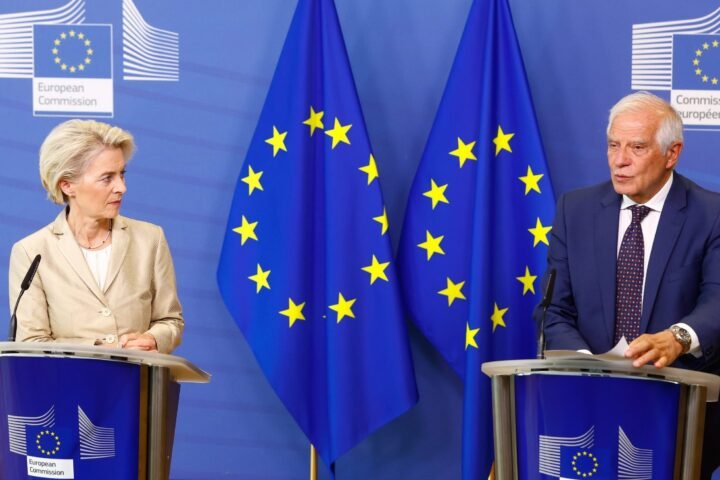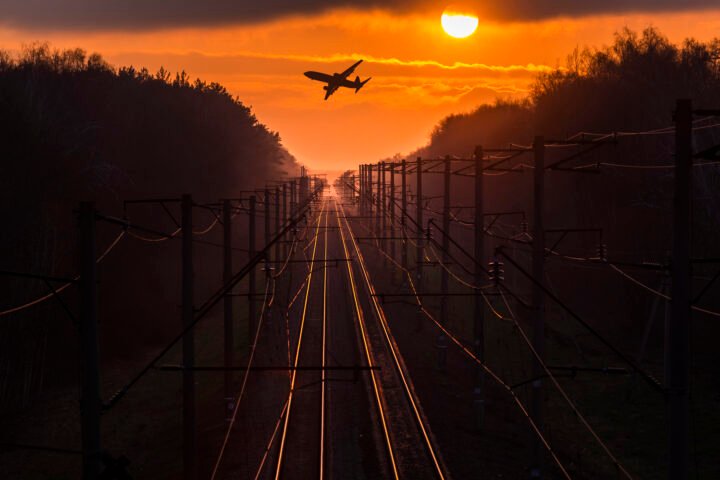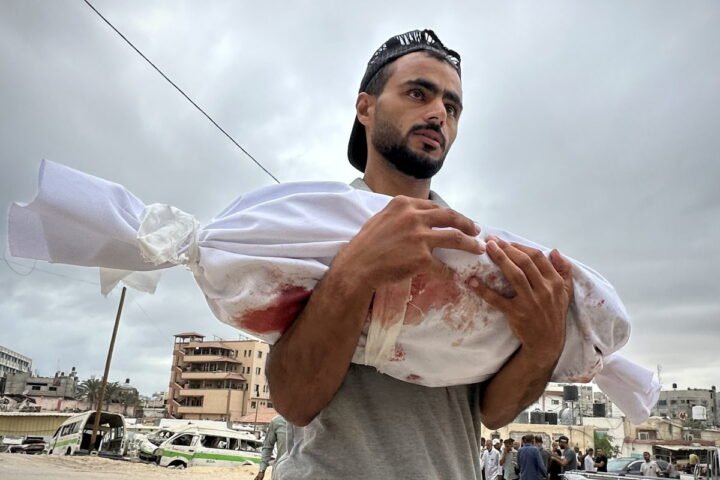German Chancellor Olaf Scholz has visited the city of Solingen three days after a deadly knife attack there. Scholz said he hoped to rapidly “tighten up” German laws on carrying knives.
Solingen Mayor Tim Kurzbach welcomed German Chancellor Olaf Scholz on Monday morning in the wake of a fatal knife attack that killed three people.
Speaking in the town, Scholz called for stricter knife laws and said questions must be answered about the failed deportation of the 26-year-old Syrian suspect.
The alleged attacker has been in custody since Saturday evening facing various charges, including suspected murder and membership of the “Islamic State” militant terror group.
Scholz expects new weapons regulations ‘very quickly’
Scholz’s first stop was the crime scene where he laid a white rose at the site of the knife attack in a market square where two men, aged 67 and 56, and a 56-year-old woman were killed. Eight more people were injured, four of them seriously.
The attack, in the western state of North-Rhine-Westphalia (NRW), shocked the country and renewed debate about immigration ahead of important regional elections next weekend.
“This was terrorism, terrorism against us all,” Scholz told reporters after the flower-laying. IS on Saturday claimed that the attacker was acting on its behalf.
“We will now have to tighten up the weapons regulations… in particular with regard to the use of knives,” he said. “I’m sure this will happen very quickly.”
Germany recently debated a possible restriction on the length of knives that can be carried in public from 12 centimeters (just under 5 inches) to 6 centimeters.
Failed efforts to repatriate suspect in focus
Authorities had planned to deport the suspected attacker to Bulgaria last year, but this did not take place because the man had not been at his refugee accommodation when officials tried to do so.
“We will have to do everything we can to ensure that those who cannot and are not allowed to stay in Germany are repatriated and deported,” Scholz said.
NRW state premier Hendrik Wüst and his deputy Mona Neubaur were alongside Scholz at the rose-laying, as well as state interior Minister Herbert Reul and Solingen’s mayor.
The group paused briefly with their hands folded before speaking to firefighters and rescue services.
The attack on Friday took place at a “Festival of Diversity” held by the city as part of its 650th anniversary.
How is Germany responding to the attack?
In the aftermath, Germany’s conservative opposition stepped up its rhetoric on curbing immigration. Friedrich Merz, head of the center-right Christian Democratic Union (CDU), called for an immediate halt to the admission of refugees from Syria and Afghanistan.
However, Kevin Kühnert — general secretary of Scholz’s center-left Social Democrats (SPD) — rejected the demand on Monday.
“The answer cannot be that we now slam the door in the faces of people who are fleeing from Islamists because they are being persecuted by them for their way of life,” said Kühnert.
“The states are responsible for deportations in Germany. In this case that would have been North Rhine-Westphalia,” said Kuhnert, adding that the state must now lay out the facts as to why no action was taken.
NRW’s state government is led by the CDU with the Greens the junior coalition partners.








